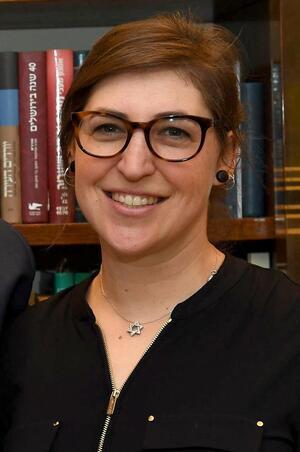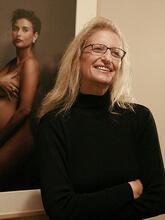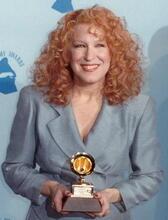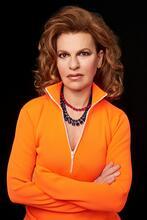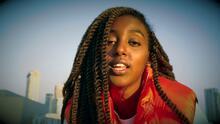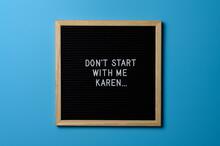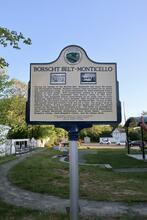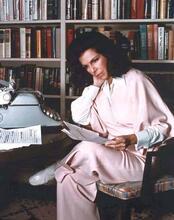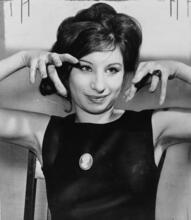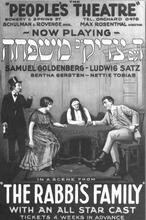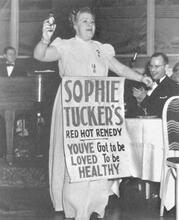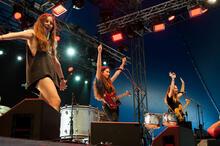Mayim Bialik
Mayim Bialik is an American actor, writer, and neuroscientist. Bialik began acting as a child and rose to fame when she starred in the sitcom Blossom in the 1990s. After the series ended, she pursued higher education, culminating with a PhD in Neuroscience. As an adult, Bialik became more religiously observant, eventually identifying as Modern Orthodox, something she would later write and speak about publicly. After completing her PhD, Bialik returned to acting. In 2010 she began playing the role of Amy Farrah-Fowler on the hit sitcom Big Bang Theory. Bialik has written books and articles on childhood, parenting, food, and other subjects. She has been criticized for her writings about Arianna Grande and the Harvey Weinstein case, as well as for her promotion of a form of attachment parenting.
Family
Actor, writer, and neuroscientist Mayim Chaya Bialik was born December 12, 1975, in San Diego, California, to a primarily Eastern European Jewish family. Her parents, Barry Bialik and Beverly Winkleman, grew up in The Bronx, where their own parents had landed after immigrating from Poland, Hungary, and Czechoslovakia. While raised Reform, Bialik later came to identify as Modern Orthodox. She has one brother, Isaac Brynjegard-Bialik, who is an artist living in California.
Early Career
Bialik came to most people’s attention as a child actor in the 1980s and 1990s, first as the young version of Bette Midler’s C.C. Bloom in Beaches (1988) and then as the quirky title character in the sitcom Blossom (1990-1995).
Mayim Bialik, like many young sitcom stars, was by turns awkward and wholesome, precocious and star turned. In her pictures she was often styled in a way that conjures Barbra Streisand. She is stunning and stylish, and yet not conventionally beautiful (especially by the standards of the 1980s). Her characters tend to be quirky—always more Amy (the awkward, academic character she later played in The Big Bang Theory) than Penny (the blond bombshell in Big Bang). Later, Jewishness and observant Jewishness became the subject of her own and others’ scrutiny (and part of her celebrity brand).
Academic Accomplishments
After graduating from North Hollywood High School and wrapping Blossom, Bialik attended UCLA, earning a BSc in neuroscience with Minors in Hebrew and Jewish Studies. She eventually completed a PhD in Neuroscience at UCLA, graduating in 2007 with a doctoral dissertation entitled Hypothalamic Regulation in Relation to Maladaptive, Obsessive-Compulsive, Affiliative, and Satiety Behaviours in Prader-Willi Syndrome. In interviews, she noted that while she had assumed her career trajectory would be academic, a return to acting offered her the work/life balance she wanted as a mother.
Return to Acting
As luck would have it, a perfect role was right around the corner: Amy Farrah-Fowler, the neuroscientist girlfriend of theoretical physicist (and lead) Sheldon Cooper, in the surprising network hit The Big Bang Theory. She joined the cast in 2010, for season four, and stayed for the next nine seasons. Big Bang catapulted her back into the celebrity spotlight.
Return to celebrity offered Bialik a host of possibilities other than acting that might never have occurred had she steered the less recognized course towards academia. She published several books, including Beyond the Sling: A Real-Life Guide to Raising Confident, Loving Children the Attachment Parent Way (with Jay Gordon, 2012), Mayim’s Vegan Table (with Jay Gordon, 2014), Girling Up: How to Be Strong, Smart and Spectacular (2017), and Boying Up: How to be Brave, Bold and Brilliant (2018); she also wrote regularly for Jewish parenting website Kveller and founded the website GrokNation, an online magazine about “contemporary issues” featuring blog posts on subjects like “embracing imperfection,” “My first mammogram,” “Life after ‘Big Bang Theory,’” and “I don’t have just one BFF, I have many, and that’s okay.”
Controversies and Complexities
Return to celebrity life was not entirely easy for Bialik, and she has been embroiled in a number of controversies. In 2014, in a blog post on Kveller, she juxtaposed her “liberal” but “old-fashioned” modest, maternal self with Arianna Grande, commenting on a billboard she had recently seen: “I will go ahead and admit I have no idea who she is or what she does. Based on the billboard, she sells lingerie. Or stiletto heels. Or plastic surgery because every woman over 22 wishes she has that body, I’m sure. Why is she in her underwear on this billboard though? And if she has a talent (is she a singer?), then why does she have to sell herself in lingerie?” While Bialik does not connect her critique to Orthodoxy in this piece (beyond mentioning that “my kids have clothes they only wear to synagogue”), the link is implicit, particularly given that religious observance has been so much a part of Bialik’s brand in recent years. The post was widely reported, but writers expressed less incredulity at Bialik’s critique of Grande than of her claim to have no idea who the pop star was.
More serious pushback came 2017 when, in response to emerging allegations about Harvey Weinstein, Bialik wrote a controversial Op Ed for The New York Times. In that piece, she wrote, “I have decided that my sexual self is best reserved for private situations with those I am most intimate with. I dress modestly. I don’t act flirtatiously with men as a policy.” Some saw this particular part of her piece as victim-blaming, suggesting that ways of dressing and acting are what lead to rape and sexual assault; actors Gabrielle Union, Patricia Arquette, and Emily Ratajkowski responded angrily on Twitter. Author Ijeoma Olou and others took issue with what they saw as Bialik’s suggestion that she was never assaulted or harassed because she wasn’t conventionally beautiful or sexy. Bialik responded to the storm by insisting that hers had always been a feminist voice.
Bialik also made headlines as an advocate of attachment parenting when she wrote about some of her unconventional ideas, including “diaperless potty-training, co-sleeping, and child-led weaning,” as well as “babywearing” and “no yelling or time outs” (Li 2012). Bialik has also talked about the complexities of being a feminist and of being religious in Hollywood. (See, for example Josephs 2019, Saad 2015, Stone 2015.) Religion is hardly invisible in Hollywood, but, in general, it has been stories about religious people (i.e. Big Love, Unorthodox) rather than the religiosity of celebrities themselves that have been of interest. The relative paucity of representations of (even Modern) Orthodox Jews in mainstream mass culture only underscores this divide. Bialik herself has tried to live at this intersection. While an extremely successful artist, she has repeatedly pointed to the unique situation she finds herself in, as one of the few observant, working actors in Hollywood.
Jewish Religiosity on Screen
A systematic screening of Big Bang reveals some fascinating (and funny) female-identified characters. But this Jewish-helmed series could only find a space for Jewishness to be explicitly present as Jewish masculinity (through the character of Howard). What would Big Bang have been like if Amy could have been Amy… but Jewish? Maybe instead of a Carrie-esque mother who locked her in the closet and who wrote, in her yearbook: “Dear Amy, self-respect and a hymen are better than friends and fun. Love, mom” (5003 “The Pulled Groin Extrapolation”), Amy could have had science-loving Jewish parents, who gloried in her desire to cut up brains and figure out how things worked and bragged about it to all their friends and neighbours. The hilarious possibilities for scenes in which Sheldon and Amy plan their wedding, bringing Amy’s Jewish relatives together with Sheldon’s Texan mishpocha making a chuppah out of a flag, and signing a Ketubah written in Klingon, cannot be denied. Mayim Bialik certainly does not need to play Modern Orthodox Jewish characters, but this may have been a missed opportunity for Big Bang.
The comedic possibilities of Bialik’s Modern Orthodox identity are revealed in an episode of the little-known Canadian webseries, Yid Life Crisis. The series is set in contemporary Montreal; its two main characters are Chaimie and Leizer, Yiddish-speaking, somewhat traditional (Leizer) and somewhat iconoclastic (Chaimie) Jews. In the second season episode “Double Date,” Bialik appears as Chaya (her real middle name), a neurosurgeon seeking a partner who shares her “traditional Jewish values.” She has been set up on a blind date with Leizer, but Chaimie comes along too. In a reversal of the typical religious match-making interview, she interviews them. At one point, the two men take out their cell phones, and pretend to talk to their mothers while actually talking about her, in Yiddish, to each other. She watches, a strange look on her face, and then takes out her own cell phone, and responds to them, in Yiddish, via her own “mom,” stating that: “She is stuck with two schmendriks, wasting her time.” They all put away their phones, and she continues, asking them a barrage of questions in Yiddish. As the episode ends, she stands and says: “OK gentlemen, I think I have everything I need. I’ll be in touch and I’ve already taken care of the cheque.” “Wait,” they clamour after her, “That’s it? We didn’t get to ask you any questions.” To which she responds: “Oh, you’ll get the opportunity to do that next time... And I may choose to show you that I am warm, affectionate, sensitive, charitable, pretty witty, and very, very sexy… but it really just depends on how it goes.”
“September 1994.” JustSeventeen, Sept. 30th, 2016. <https://justseventeen.tumblr.com/post/151151089591/september-1994-we-tr…;
<https://superradnow.files.wordpress.com/2012/01/tumblr_l1tp2jxvbp1qz7q2…;
Yidlifecrisis.com
Bialik, Mayim. “Mayim Bialik: Being a Feminist in Hervey Weinstein’s World.” Op-Ed. New York Times, October 13, 2017. <https://www.nytimes.com/2017/10/13/opinion/mayim-bialik-feminist-harvey…;.
Bialik, Mayim. “The Problem With That Giant Billboard of Ariana Grande.” Kveller. September 12, 2014. < https://www.kveller.com/mayim-bialik-the-problem-with-that-giant-billbo…;
Faghaly, N. and Eden Leone, eds. The Sexy Science of Big Bang Theory: Essays on Gender in the Series. Jefferson, NC: McFarland & Company, 2015.
Josephs, Allison. “Excvlusive Interview with Mayim Bialik on being most Observant Actress in Hollywood.” Jew in the City, May 22, 2019. < https://jewinthecity.com/2019/05/exclusive-interview-with-mayim-bialik-…;
Li, Anita. “Big Bang Star Mayim Bialik writes controversial parenting book.” https://www.thestar.com/life/2012/03/06/big_bang_star_mayim_bialik_writ…
McIntosh, Heather. “Representations of Female Scientists in The Big Bang Theory.” Journal of Popular Film & Television 42 (4) 2014: 195-204.
Saad, Nardine. “Mayim Bialik on Religion in Hollywood.” Los Anegeles Times, August 24, 2015. < https://www.nytimes.com/2017/10/13/opinion/mayim-bialik-feminist-harvey…;
Sartain, Jeffrey A. “Geeksploitation: Gender and Genius in The Big Bang Theory.” Genius on Television, edited by A. L. Carlson, 96-112 Jefferson, NC: McFarland & Company, 2015: 96–112.
Spiegel, Julia. “The Big Theory on the (Not So) Bangin’ Jewish Mother.” In The Sexy Science of Big Bang Theory: Essays on Gender in the Series. edited by N. Faghaly and Eden Leone, 51-71. Jefferson, NC: McFarland & Company, 2015.
Stone, Natalie. “Mayim Bialik: It’s not ‘trendy to be observant or religious’ in Hollywood.” CNN.com, August 25, 2015. < https://www.cnn.com/2015/08/25/entertainment/mayim-bialik-religious-thr…;
Weitekamp, Margaret A. “’We’re Physicists’: Gender, Gender and the image of scientists in The Big Bang Theory.” The Journal of Popular Television 3 (1). 2015: 75–92.

